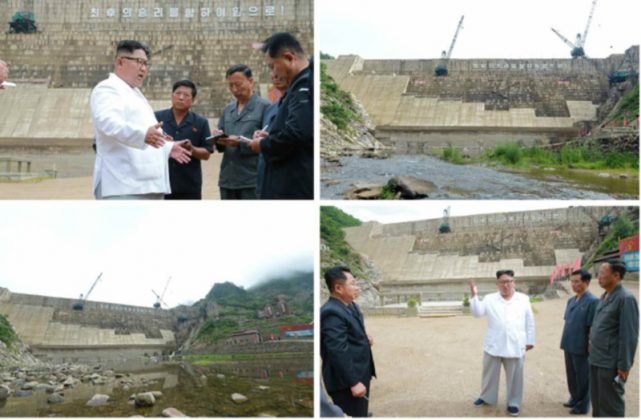
According to North Korean state media, during on-the-spot guidance at the a power plant construction site in Orang County, North Hamgyong Province, leader Kim Jong Un expressed anger at the lack of progress over the past 30 years.
Kim blamed the lack of progress on the irresponsibility of the Cabinet and officials in charge. North Korean leaders have typically placed blame for the country’s failings on lower-level officials to deflect criticism away from the leadership.
“Those in charge in the Cabinet have not even visited the construction site for several years […] I can’t get my head around whether they want to actually build it or not,” Kim reportedly said during his on-the-spot guidance.
“This important construction project is not being conducted with focused efforts based on scientific calculations and specific plans. Construction labor and equipment are not in their proper places,” he added.
Those in charge of the project were indeed likely to have been unfocused and had laborers and equipment in a state of disarray. The state of affairs, however, can also be blamed on the fact that Kim’s personal projects are given priority in investment and labor over projects under the management of the Cabinet.
As a result of this system, construction resources have been diverted to projects that Kim has ordered directly, like the construction of the Saepodungpan Livestock Center, Wonsan Kalma Tourism Zone, Tanchon Power Plant and Ryomyong Street in Pyongyang.
In reality, the North Korean economy’s slow development is not solely due to international sanctions or a lack of loyalty amongst government bureaucrats; rather, it is systemic.
North Korea has operated a mass planned economy while focusing on fanatical calls for praise of the Suryong [Kim Jong Un]. These clarion calls have removed rational discourse from society and replaced it with propaganda and coercion. The mindset that “only the great leader knows best” has been a roadblock to evidence-based development in the country.
Dictatorships are based on a political desire of the ruling class to maintain their own privileged rights. In a system like North Korea’s, rational objectivity remains a distant prospect.
North Korea’s propaganda machine claims that the “leader is trying to give the people economic development as a gift,” but that, “ignorant and incompetent lower-ranked officials are delaying progress toward this goal.”
North Korea can only achieve true change once the leadership evolves from its current methodology and practices.
*The author of this piece is originally from North Korea.




















